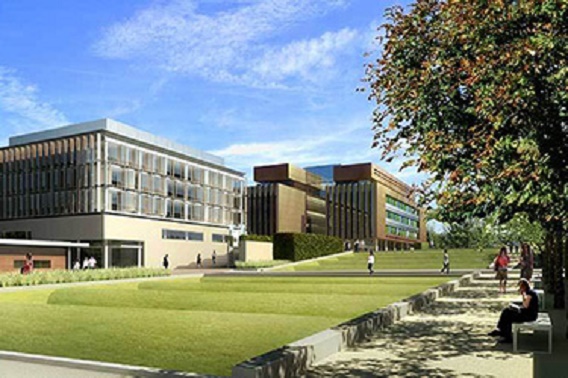University of Southampton: Southampton awarded £25m in major boost for biomedical research
Pioneering biomedical research is set to almost double in Southampton following a major funding boost.
The National Institute for Health and Care Research (NIHR) has announced over £25 million for the NIHR Southampton Biomedical Research Centre (BRC) over the next five years.
The NIHR BRC is a longstanding partnership between the University of Southampton and University Hospital Southampton NHS Foundation Trust (UHSFT), working together to translate scientific discoveries into new treatments, diagnostics and medical technologies for patients.
Southampton has spearheaded NIHR-funded nutrition and respiratory research since 2008. Major breakthroughs in deliberate allergen exposure and lifelong prevention of fractures have improved treatments and guidance for patients in the south and across the UK.
Most recently, the BRC played a key role in responding to the COVID-19 pandemic. Southampton researchers across different disciplines enhanced prevention, diagnostics and treatments at incredible pace and scale, including fast tracking COVID-19 drugs into large scale trials. Many of these researchers have received recognition in Her Majesty’s Queen’s Honours for their tireless response.
This latest significant investment will enable new themes for Data Health and Society; Microbiology, Immunology and Infection; and Perioperative and Critical Care.
The funding is an increase of around 80 percent from the £14 million received in 2017-2022.
Mike Grocott, Director Designate of the NIHR Southampton BRC and Professor of Anaesthesia & Critical Care at the University of Southampton, who led the bid, said: “Southampton has a proven ability to translate discovery research into benefit for patients and the public, the health and care system, and the broader economy. I am delighted that the NIHR has recognised this and will dramatically increase our research capacity and capability in the coming years. We look forward to working with patients and other stakeholders in our local and regional communities to deliver on this great opportunity.”
The new BRC is also committed to increasing patient and public involvement and will continue developing a person-centred, collaborative and inclusive research culture.
Professor Mark Smith, Vice-Chancellor of the University of Southampton, said: “We are extremely proud of our partnership with University Hospital Southampton NHS Foundation Trust and this significant increase in funding is a testament to the ground-breaking work taking place across our communities.
“Our interdisciplinary teams will continue to work together to improve diagnostics and treatments for patients in the UK and around the world.”
Professor Diana Eccles, Dean of the Faculty of Medicine at the University, added: “Southampton is internationally known for its pioneering work into how nutrition and lifestyle in early, mid and later life have important effects on health and developing novel treatments for respiratory diseases such as COPD.
“This award will further strengthen the partnership between the hospital and the University and will play a vital role in helping us develop and expand our research capacity in nutrition, respiratory disease and infection but also in health data and in critical and perioperative care – two new areas that will bring further benefits for patients.”
The BRC is closely tied with the NIHR Southampton Clinical Research Facility (CRF), an extensive, dedicated space for early-stage clinical research in the heart of University Hospital Southampton.
David French, Chief Executive Officer at University Hospital Southampton NHS Foundation Trust, said: “Pioneering research and innovation are vital to continuous improvement of patient care and they are at the heart of our Trust’s strategy. I am delighted that this multi-million pound investment opens a new chapter in our 50-year partnership with the University of Southampton, helping to turn more discoveries into treatments for patients.”
The NIHR has awarded nearly £800 million to 20 new BRCs across England. The centres, part of NIHR’s research infrastructure, receive substantial levels of sustained funding to attract the best scientists and create an environment where experimental medicine can thrive.
Professor Lucy Chappell, Chief Executive of the NIHR, said: “Research by NIHR Biomedical Research Centres has led to a number of ground-breaking new treatments, such as new gene therapies for haemophilia and motor neurone disease, the world-first treatment for Creutzfeldt–Jakob disease, a nose-drop vaccine for whooping cough, and the first UK-wide study into the long-term impact of COVID-19.
“This latest round of funding recognises the strength of expertise underpinning health and care research across the country and gives our nation’s best researchers more opportunities to develop innovative new treatments for patients.”

